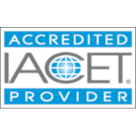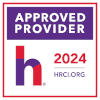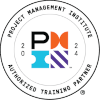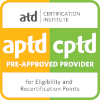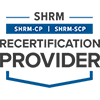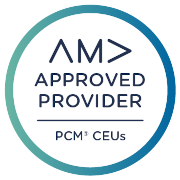Product Details
Topics Covered
- Social media marketing
- Online marketing
- Social media platforms
- Social media demographics
- Organizational profile
- Content marketing
- Native advertising
- Reputation management
- Harris Poll's Reputation Quotient
- Reputation improvement
- Political consumerism
- Monitoring
- Hashtags
- Brand engagement
- Social media metrics
- Return on investment (ROI)
- Call to action
- Nielsen Global Trust in Advertising Survey
- Infrastructure
- Mobile integration
- Email integration
- Hub integration
- Reach
- Automation
Key Features
- Mobile-friendly
- Audio-enabled
- Badge and credit-awarding
- Real-world case studies
- Fully accessible
- Games & Flashcards
- Expert-supported
- Video content
Course Preview
Course Description
Learning Outcomes
- Define social media, name several platforms, and explain the benefits and drawbacks of using each platform
- Create a content marketing plan that addresses audience, tone, relevance, frequency, and quality of content
- List the spheres of reputation according to the Harris Poll and explain how social media can be used to manage each sphere of an organization's reputation
- Describe why and how a company should monitor social media
- Explain various strategies for engaging with audiences via social media, and the aims of each form of engagement
- Set social media marketing objectives that correlate to specific sales and growth goals
- Describe how to integrate social media with mobile, email, and a hub website, and describe the advantages of doing so
- Demonstrate the difference between organic and paid reach, and list the factors that influence reach on various social media platforms
- Explain how to reach influencers and name at least two relevant influencers in the learner's industry
- Quantify the time and human capital that will be devoted to the learner's social media marketing campaign based on his or her organization's size
Notes
This course has an "Ask the Expert" feature, which submits your questions directly to an expert in the field you are studying. Questions are answered as quickly as possible and usually within 24 hours.
As an Accredited Provider, MindEdge offers for its learning events that comply with the Continuing Education and Training Standard.
Learners must achieve an average test score of at least 70% to meet the minimum successful completion requirement and qualify to receive credit. Learners will have three attempts at all graded assessments.
Project Management Institute, , the Registered Education Provider logo, Project Management Professional, , Project Management Body of Knowledge, , Agile Certified Practitioner, -, Risk Management Professional, -, the Talent Triangle, and the Talent Triangle logo are marks of the Project Management Institute, Inc.
Information in this course has been taken from A Guide to the Project Management Body of Knowledge, (® Guide) - Sixth Edition, Project Management Institute Inc., 2017.
The following list outlines the you will earn for completing this course, based on the certifications you have.
CAPM®/PMP®/PgMP® |
|---|
| Ways of Working PDUs: 1.75 |
| Power Skills PDUs: 0 |
| Business Acumen PDUs: 1.75 |
| TOTAL: 3.5 |
PfMP® |
|---|
| Ways of Working PDUs: 1.75 |
| Power Skills PDUs: 0 |
| Business Acumen PDUs: 1.75 |
| TOTAL: 3.5 |
PMI-ACP® |
|---|
| Ways of Working PDUs: 0 |
| Power Skills PDUs: 0 |
| Business Acumen PDUs: 1.75 |
| TOTAL: 1.75 |
PMI-PBA® |
|---|
| Ways of Working PDUs: 1.75 |
| Power Skills PDUs: 0 |
| Business Acumen PDUs: 1.75 |
| TOTAL: 3.5 |
PMI-RMP® |
|---|
| Ways of Working PDUs: 0 |
| Power Skills PDUs: 0 |
| Business Acumen PDUs: 1.75 |
| TOTAL: 1.75 |
PMI-SP® |
|---|
| Ways of Working PDUs: 0 |
| Power Skills PDUs: 0 |
| Business Acumen PDUs: 1.75 |
| TOTAL: 1.75 |
